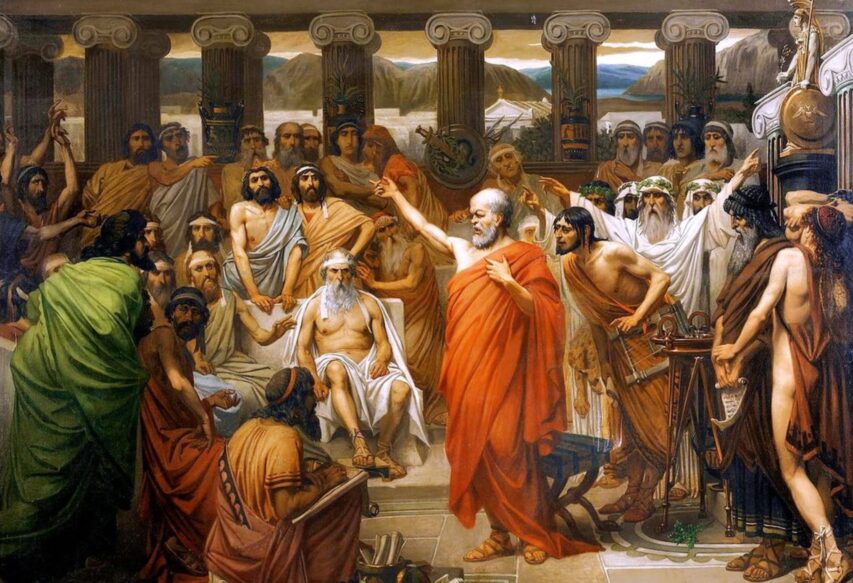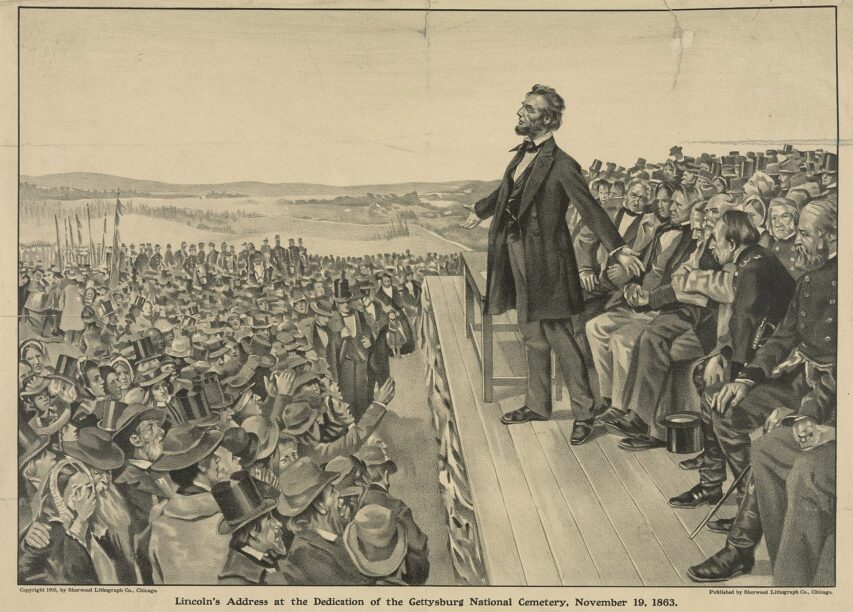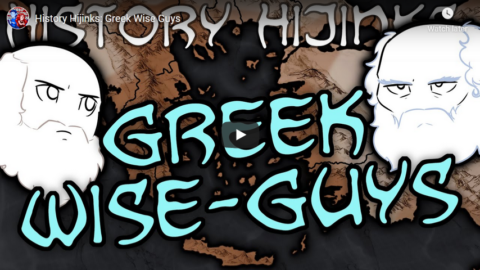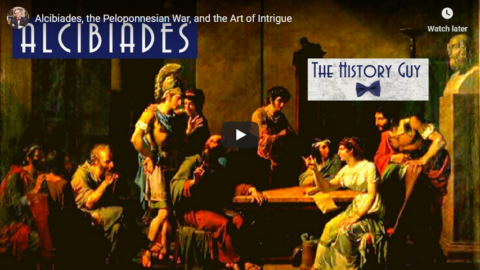Leys’s essays often combine delicacy with deep irony — a combination that few writers, especially in our times of stridency and parti pris, achieve. Here, for example, is the beginning of his essay “An Introduction to Confucius”: “If we consider humanity’s greatest teachers of wisdom — the Buddha, Confucius, Socrates, Jesus — we are struck by a curious paradox: today, not one of them could obtain even the most modest of teaching posts in any of our universities”. We laugh — which, of course, is the best tribute to the seriousness of the point that he is making. He goes on to explain, “The reason is simple: their qualifications are insufficient — they have published nothing”.
In two sentences, Leys has pinned, like a butterfly to an entomologist’s board, the bureaucratic sickness that has overtaken our institutions of higher learning (and not only those institutions). There is no madness more difficult to treat than that which believes itself sane, and there is no irrationality greater than that which believes itself perfect. It is no surprise that Leys retired early from his university chair because the university no longer bore any resemblance to what it had once been and misled students and the rest of society into believing it still was. A community of scholars had become an organization of foremen on a production line.
Theodore Dalrymple, “Rare and Common Sense”, First Things, 2017-11.
April 11, 2025
QotD: Teaching in modern universities
November 18, 2024
Changing the way “our leaders” speak to us
Ted Gioia says that the old rules of communicating to the public are undergoing a major shift.
Before they executed Socrates in the year 399 BC — on charges of impiety and corrupting youth — the philosopher was given a chance to defend himself before a jury.
Socrates started his defense with an unusual plea.
He told his listeners that he had no skill at making speeches. He just knew the everyday language of the common people.
Socrates explained that he had never studied rhetoric or oratory. He feared that he would embarrass himself by speaking so plainly in his trial defense.
“I show myself to be not in the least a clever speaker,” Socrates told the jurors, “unless indeed they call him a clever speaker who speaks the truth.”
He knew that others in his situation would give “speeches finely tricked out with words and phrases”. But Socrates only knew how to use “the same words with which I have been accustomed to speak” in the marketplace of Athens.
Socrates wasn’t exaggerating. His entire reputation was built on conversation. He never wrote a book — or anything else, as far as we can tell.
Spontaneous talking was the basis of his famous “Socratic method” — a simple back-and-forth dialogue. You might say it was the podcasting of its day. He aimed to speak plainly — seeking the truth through open and unfiltered conversation.
That might get you elected President in the year 2024. But it didn’t work very well in Athens, circa 400 BC.
Socrates received the death penalty — and was executed by poisoning.
Is that shocking? Not really.
Western culture was built on one-way communication. Leaders and experts speak — and the rest of us listen.
Socrates was the last major thinker to rely solely on conversation. After his death, his successors wrote books and gave lectures.
That’s what powerful people do. They make decisions. They give orders. They deliver speeches.
But not anymore.
In the aftermath of the election, the new wisdom is that giving speeches from a teleprompter doesn’t work in today’s culture. Citizens want their leaders to sit down and talk.
And not just in politics. You may have seen the same thing in your workplace — or in classrooms and other group settings. People now resist one-way orders from the top.
The word “scripted” is now an insult. Plainspoken dialogue is considered more trustworthy. This is part of the up-versus-down revolution I’ve written about elsewhere — a conflict that, I believe, may have even more impact on society than Left-versus-Right.
For better or worse, the hierarchies we’ve inherited from the past are toppling. To some extent, they are even reversing.
This is now impacting how leaders are expected to speak. Events of the last few days have raised awareness of this to a new level — but the “experts” should have expected it. That’s especially true because the experts will be those most impacted by this shift.
June 30, 2024
Why Democracies Always Fail
The Why Minutes
Published Feb 21, 2024Why do democracies have a pesky habit of destroying themselves?
May 19, 2024
“Alcibiades … would surely have spawned numerous Hollywood movies and novelistic treatments, had his name not been so long and complicated”
In The Critic, Armand D’Angour outlines the fascinating career of one of the great “characters” of ancient Greece, Alcibiades:
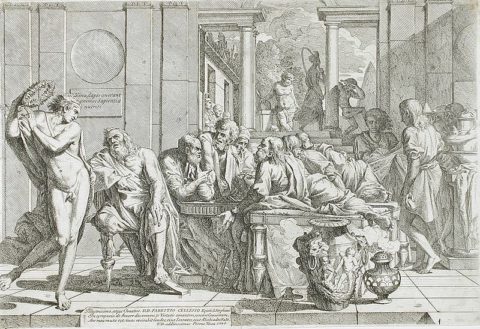
“Drunken Alcibiades interrupting the Symposium”, an engraving from 1648 by Pietro Testa (1611-1650)
Via Wikimedia Commons.
The career of the aristocratic Athenian politician, lover, general and traitor Alcibiades (c. 451–404 BC) is so well documented and colourful that it would surely have spawned numerous Hollywood movies and novelistic treatments, had his name not been so long and complicated (the standard English pronunciation is Al-si-BUY-a-deez).
His popularity, duplicity and unwavering self-regard make for ready points of comparison with modern politicians. The sheer amount of historical detail attached to his story is reflected in Aristotle’s comment in his Poetics: “Poetry is more scientific and serious than history, because it offers general truths whilst history gives particular facts … A ‘particular fact’ is what Alcibiades did or what was done to him.”
We know about “what Alcibiades did and what was done to him” from several authoritative ancient writers. The most entertaining portrayal, however, is that of the philosopher Plato (c. 425–347 BC), whose dialogue Symposium relates how Alcibiades gatecrashed a party at the home of the playwright Agathon, where several speeches had already been delivered on the theme of eros (love):
Suddenly there was a loud banging on the door, and the voices of a group of revellers could be heard outside along with that of a piper-girl. Agathon told his servants to investigate: “If they’re friends, invite them in,” he said.” If not, tell them the party’s over.” A little later they heard the voice of Alcibiades echoing in the courtyard. He was thoroughly drunk, and kept booming “Where’s Agathon? Take me to Agathon.” Eventually he appeared in the doorway, supported by a piper-girl and some servants. He was crowned by a massive garland of ivy and violets, and his head was flowing with ribbons. “Greetings, friends,” he said, “will you permit a very drunken man to join your party?”
Alcibiades proceeds to eulogise the wisdom and fortitude of his beloved mentor, the philosopher Socrates, detailing how the latter saved his life in a battle in Northern Greece in 432 BC at the start of the Peloponnesian War between Athens and Sparta, a conflict that dragged on until Athens’ defeat in 404 BC.
The prominence of Alcibiades in Platonic writings stems from his long and close relationship with Plato’s teacher Socrates. He was born in Athens to aristocratic forebears and at around the age of four lost his father Clinias, who was killed in battle in 447 BC. Along with his brother, Alcibiades entered the guardianship of Pericles, his mother’s cousin and Athens’ leading politician.
Shortly afterwards, Pericles was to take Aspasia of Miletus, a clever woman admired by Socrates, as his partner. Aspasia’s sister was married to Alcibiades the Elder, Clinias’ father, so Aspasia was Alcibiades’ great-aunt by marriage. Her acquaintance with Socrates might have been what led Pericles to appoint Socrates as a mentor for his young ward.
As a teenager Alcibiades was widely admired for his good looks and spirited personality, but he was also notorious for misdemeanours, such as when he struck a teacher for dishonouring Homer, released a bird into the Council chamber to disrupt proceedings, and paraded his dog in public with its tail docked.
Ambitious Athenians were expected to espouse a “love of honour” (philotimia), and Alcibiades displayed this to extremes. He married the daughter of a wealthy Athenian, and when she tried to divorce him because of his affairs, he lifted her bodily and carried her home through the crowded Agora.
April 12, 2024
Greek History and Civilization, Part 6 – The Search for Stability
seangabb
Published Apr 7, 2024This sixth lecture in the course deals with the period of Greek history between the end of the Persian Wars and the assassination of Philip II of Macedon.
(more…)
September 29, 2023
History-Makers: Plato
Overly Sarcastic Productions
Published 9 Jun 2023For the best experience, project this video onto the wall of a cave.
SOURCES & Further Reading:
Five Dialogues by Plato, translation and introduction by G.M.A. Grube – Introductory Readings in Ancient Greek and Roman Philosophy, Second Edition, edited by C.D.C. Reeve and Patrick Lee Miller – Plato Vol I: Euthyphro Apology Crito and Phaedo from Loeb Classical Library, Edited and Translated by Chris Emlyn-Jones and William Preddy. Stanford Encyclopedia of Philosophy: Plato https://plato.stanford.edu/entries/pl…
I also have a degree in Classical Studies, specifically in “Classics and Philosophy”
(more…)
September 21, 2023
QotD: The Iliad as Bronze Age gangsta rap
A few months ago I tried moving the Iliad from the list of books I’m good at pretending to have read to the list of books I’ve actually read, and to my surprise I bounced off of it pretty hard. What I wasn’t expecting was how much of it is just endlessly tallied lists of gruesome slayings, disses, shoutouts to supporters, more killings, women taken by force, boasts about wealth, boasts about blinged-out-equipment, more shoutouts to the homies from Achaea who here repreSENTing, etc. The Iliad is basically one giant gangster rap track, and gangster rap is kinda boring.
What was cool though is I felt like I came away with a much better understanding of Socrates, Plato, and that whole milieu. Much like it’s easy to miss the radicalism of Christianity when you come from a culture steeped in it, it’s easy to miss the radicalism of Socrates if you don’t understand that this is the culture he was reacting against. Granted, the compilation of the Homeric epics took place centuries before the time of classical Athens, but my sense is that in important respects things hadn’t changed all that much. In our society, even people who aren’t professing Christians have been subliminally shaped by a vast set of Christian-inflected moral and epistemic and metaphysical assumptions. Well in the same way, in the Athens of Socrates and of the Academy, the “cultural dark matter” was the world of the Iliad: honor, glory, blinged out bronze armor, tearing hot teenagers from the arms of their lamenting parents, etc.
We have a tendency to think of the Greek philosophers as emblematic of their civilization, when in reality they were one of the most bizarre and unrepresentative things that happened in that society. But Numa Denis Fustel de Coulanges is here to tell us it wasn’t just the philosophers! So much of our mental picture of Ancient Greece and Rome is actually a snapshot of one fleeting moment in the histories of those places, arguably a very unrepresentative moment at which everything was in the process of collapsing. It’s like if [POP CULTURE ANALOGY I’M TOO TIRED TO THINK OF]. And actually once you think about it this way, everything makes way more sense. All those weird customs the Greeks and Romans had, all the lares and penates and herms and stuff, those are what these societies were about for hundreds and hundreds of years, and the popular image is just this weird encrustation, this final flowering at the end.
Jane and John Psmith, “JOINT REVIEW: The Ancient City, by Numa Denis Fustel de Coulanges”, Mr. and Mrs. Psmith’s Bookshelf, 2023-02-20.
August 19, 2022
QotD: How pre-modern polytheistic religions originated
… normally when you ask what the ancients knew of the gods and how they knew it, the immediate thought – quite intuitively – is to go read Greek and Roman philosophers discussing on the nature of man, the gods, the soul and so on. This is a mistake. Many of our religions work that way: they begin with a doctrine, a theory of how the divine works, and then construct ritual and practice with that doctrine as a foundation.
This is exactly backwards for how the ancients, practicing their practical knowledge, learn about the gods. The myths, philosophical discussions and well-written treatises are not the foundation of the religion’s understanding of the gods, but rather the foaming crest at the top of the wave. In practice, the ruminations of those philosophers often had little to do the religion of the populace at large; famously Socrates’ own philosophical take on the gods rather upset quite a lot of Athenians.
Instead of beginning with a theory of the divine and working forwards from that, the ancients begin with proven methods and work backwards from that. For most people, there’s no need to know why things work, only that they work. Essentially, this knowledge is generated by trial and error.
Let’s give an example of how that kind of knowledge forms. Let’s say we are a farming community. It is very important that our crops grow, but the methods and variations in how well they grow are deep and mysterious and we do not fully understand them; clearly that growth is governed by some unseen forces we might seek the aid of. So we put together a ritual – perhaps an offering of a bit of last year’s harvest – to try to get that favor. And then the harvest is great – excellent, we have found a formula that works. So we do it next year, and the year after that.
Sometimes the harvest is good (well performed ritual there) and sometimes it is bad (someone must have made an error), but our community survives. And that very survival becomes the proof of the effectiveness of our ritual. We know it works because we are still here. And I mean survival over generations; our great-great-grandchildren, for whom we are nameless ancestors and to whom our ritual has always been practiced in our village can take solace in the fact that so long as this ritual was performed, the community has never perished. They know it works because they themselves can see the evidence.
(These sorts of justifications are offered in ancient works all the time. Cicero is, in several places, explicit that Roman success must, at the first instance, be attributed to Roman religio – religious scruples. The empire itself serves as the proof of the successful, effective nature of the religion it practices!)
Bret Devereaux, “Collections: Practical Polytheism, Part I: Knowledge”, A Collection of Unmitigated Pedantry, 2019-10-25.
July 10, 2021
History-Makers: Aristophanes
Overly Sarcastic Productions
Published 9 Jul 2021He told the Athenians they were a disaster and they gave him a prize. Aristophanes wrote in the new Theatrical genre of Comedy during the golden age of Athens, and used his plays to viciously satirize Athenian society. They create a fabulously clear portrait of ancient Athenian life, and they have the corollary benefit of being funny as hell.
SOURCES & Further Reading: The 11 plays of Aristophanes, with particular focus on Clouds and Women at the Thesmophoria, Britannica’s “Aristophanes”, Crash Course Theater #2 & 4.
Partial Tracklist: “Sneaky Snitch”, “Marty Gots A Plan” Kevin MacLeod (incompetech.com)
Licensed under Creative Commons: By Attribution 4.0 License
http://creativecommons.org/licenses/b…Our content is intended for teenage audiences and up.
PATREON: https://www.Patreon.com/OSP
PODCAST: https://overlysarcasticpodcast.transi…
DISCORD: https://discord.gg/osp
MERCH LINKS: http://rdbl.co/osp
OUR WEBSITE: https://www.OverlySarcasticProductions.com
Find us on Twitter https://www.Twitter.com/OSPYouTube
Find us on Reddit https://www.Reddit.com/r/OSP/
From the comments:
Overly Sarcastic Productions
2 hours ago
While we’re here, one subject I cut for time is the relationship between “The Clouds” and the trial of Socrates.It’s commonly assumed that Aristophanes’ satire played a part in Athens’ decision to charge and ultimately kill Socrates, but that interpretation doesn’t really hold up to scrutiny.
The Clouds was performed over 20 years before Socrates’ trial. If the play had that strong an effect on Athens, we can assume Socrates would have been charged far sooner. And Plato’s own writings paint Aristophanes rather favorably — if Plato blamed Aristophanes for the trial, he does not make that obvious.
There IS one snide line in Socrates’ Apology that seems to a modern reader like it’s referring to The Clouds, but really we can’t be sure. Aristophanes was not the only comic playwright in Athens, and certainly not the only person who disliked Socrates. Did The Clouds contribute to a negative public perception of Socrates? Sure, in part, at least when it was performed in 423. But it’s faaar more likely that Socrates’ trial and death in 399 owe more to his persistent habit of being a Colossal Pain In The Ass to whomever he was speaking with.
Reading The Apology makes it clear that nobody had the power to make Athens hate Socrates more than Socrates.
-B
October 17, 2020
History Hijinks: Greek Wise Guys
Overly Sarcastic Productions
Published 16 Oct 2020When I first studied Ancient Philosophy in college I thought it was engaging and interesting to discuss and whatever, but only years later did I come to appreciate the true hilarity of these Wise-Guys.
SOURCES & Further Reading: Plato’s Dialogues (Apology & Republic), Aristotle’s Ethics, Gorgias’ Encomium of Helen, and when direct sources aren’t available, there’s a bucketload of great write-ups from Stanford: https://plato.stanford.edu/entries/pr…, https://plato.stanford.edu/entries/de…, https://plato.stanford.edu/entries/ar…, https://plato.stanford.edu/entries/pl…, https://plato.stanford.edu/entries/so…
This video was edited by Sophia Ricciardi AKA “Indigo”. https://www.sophiakricci.com/
Our content is intended for teenage audiences and up.
PATREON: https://www.Patreon.com/OSP
PODCAST: https://overlysarcasticpodcast.transi…
DISCORD: https://discord.gg/kguuvvq
MERCH LINKS: http://rdbl.co/osp
OUR WEBSITE: https://www.OverlySarcasticProductions.com
Find us on Twitter https://www.Twitter.com/OSPYouTube
Find us on Reddit https://www.Reddit.com/r/OSP/
August 17, 2020
Alcibiades, the Peloponnesian War, and the Art of Intrigue
The History Guy: History Deserves to Be Remembered
Published 27 Dec 2019Intrigue has always been a part of both diplomacy and war. In ancient Greece, one enterprising politician and general took the art of switching sides to the extreme. The History Guy remembers Alcibiades, a general who had an out-sized effect on the Peloponnesian War.
This is original content based on research by The History Guy. Images in the Public Domain are carefully selected and provide illustration. As images of actual events are sometimes not available, images of similar objects and events are used for illustration.
All events are portrayed in historical context and for educational purposes. No images or content are primarily intended to shock and disgust. Those who do not learn from history are doomed to repeat it. Non censuram.
Find The History Guy at:
Patreon: https://www.patreon.com/TheHistoryGuy
The History Guy: History Deserves to Be Remembered is the place to find short snippets of forgotten history from five to fifteen minutes long. If you like history too, this is the channel for you.
Awesome The History Guy merchandise is available at:
teespring.com/stores/the-history-guyScript by JCG
#history #thehistoryguy #ancienthistory
April 19, 2020
QotD: Early Greek philosophers
The greatest name in this succession of first researchers was that of Democritus, who became known as the laughing philosopher. In his ethical teaching great store was set by cheerfulness.
Democritus was still living when the new scientific movement suffered a violent reverse. It was in Athens, a center of conservatism, that the opposition arose and it was brilliantly headed. The leader was no other than Socrates, who despaired of the possibility of scientific knowledge. Even Aristotle, who pioneered in some branches of science, rejected the atomic theory. Between these two great names came that of Plato, who believed the ultimate realities to be not atoms but triangles, cubes, spheres and the like. By a kind of analogy he extended this doctrine to the realm of abstract thought. If, for example, perfect spheres exist, why should not perfect justice exist also? Convinced that such perfect justice did exist, he sought in his own way to find it. The ten books of his Republic record only part of his searchings of the mind. At the core of all this thinking lies the doctrine that the eternal, unchangeable things are forms, shapes, models, patterns, or, what means the same thing in Greek, “ideas.” All visible things are but changing copies of unchanging forms.
The Epicurean Revival
After the great triumvirate of Socrates, Plato and Aristotle had passed away the scientific tradition was revived with timely amendments by Epicurus. In his time it was the prevalent teaching that the qualities of compound bodies must be explained by the qualities of the ingredients. If the compound body was cold, then it must contain the cold element air, if moist, water, if dry, earth, and if hot, fire. Even Aristotle sanctioned this belief in the four elements. Epicurus, on the contrary, maintained that colorless atoms could produce a compound of any color according to the circumstances of their combination. This was the first definite recognition of what we now know as chemical change.
The Stoic Reaction
Epicurus was still a young man when Athenian conservatism bred a second reaction to the new science. This was headed by Zeno, the founder of Stoicism. His followers welcomed a regression more extreme than that of Aristotle in respect to the prime elements. For the source of their physical theories they went back to Heracleitus, who believed that the sole element was fire. This was not a return to the Stone Age but it was a longish way in that direction.
This Heracleitus had been a doleful and eccentric individual and became known, in contrast to the cheerful Democritus, as the weeping philosopher. His gloom was perpetuated in Stoicism, a cheerless creed, of which the founder is described as “the sour and scowling Zeno.” Epicurus, on the contrary, urged his disciples to “wear a smile while they practiced their philosophy.”
Running parallel to these contrasting attitudes toward life and physical theories was an equally unbroken social divergence. Platonism as a creed was always aristocratic and in favor in royal courts. “I prefer to agree with Plato and be wrong than to agree with those Epicureans and be right,” wrote Cicero, and this snobbish attitude was not peculiar to him. Close to Platonism in point of social ranking stood Stoicism, which steadily extolled virtue, logic, and divine providence. This specious front was no less acceptable to hypocrites than to saints. Aptly the poet Horace, describing a pair of high-born hypocrites, mentions “Stoic tracts strewn among the silken cushions.” Epicureanism, on the contrary, offered no bait to the silk-cushion trade. It eschewed all social distinction. The advice of the founder was to have only so much regard for public opinion as to avoid unfriendly criticism for either sordidness or luxury. This was no fit creed for the socially or politically ambitious.
Norman W. DeWitt, “Epicurus: Philosophy for the Millions”, The Classical Journal, 1947-01.
January 18, 2019
Xenophon’s Anabasis, Memorabilia, and Symposium
I’ve read an English translation of Xenophon’s Anabasis, but I only know a little bit about the Memorabilia, so Eve Browning‘s essay at Aeon was quite interesting:
The Anabasis is the first military memoir in the history of Western literature, and it recounts Xenophon’s experiences in the Persian campaign of Cyrus against his brother King Artaxerxes, and the long march ‘up country’. Since Xenophon waited several decades to commit these memories to writing, some have argued that they cannot be accurate. But as anyone who has listened to combat veterans will know, there’s a lot about the remembrance of past tours of duty that time cannot soften nor the years wear away.
Xenophon also wrote histories, portraits of leaders, practical treatises on horse training, hunting and running a household, among other things. An enduring theme that runs through much of his writing, and which has received scholarly attention in recent years, is that of leadership. What makes a good leader? What kind of leader can induce humans to endure hardships and expend effort toward a common goal? What exemplary traits mark out a leader and allow him or her to execute the requisite tasks with skill, induce a harmonious fellowship among those for whom he is responsible, maintain loyalty and mission clarity among the ‘troops’, whomever they might be? It is not difficult to see the formative roots of these questions, and of Xenophon’s answers to them, in that literally death-defying, embattled 2,000-mile march up-country to the sea.
Xenophon also wrote down his remembrances of a local philosopher named Socrates. Those who know Socrates mainly through the writings of Plato – Xenophon’s near-exact contemporary – will find Xenophon’s Socrates something of a surprise. Plato’s Socrates claims to know nothing, and flamboyantly refutes the knowledge claims of others. In the pages of Xenophon’s Memorabilia, however, Socrates actually answers philosophical questions, dispenses practical life advice, provides arguments proving the existence of benevolent gods, converses as if peer-to-peer with a courtesan, and even proposes a domestic economy scheme whereby indigent female relatives can become productive through the establishment of a textile business at home.
Socrates’ conversation, according to Xenophon, ‘was ever of human things’. This engaged, intensely practical, human Socrates can be refreshing to encounter. Anyone who has felt discomfort at how the opponents of Plato’s Socrates suffer relentless public refutations and reductions to absurdity can take some comfort in Xenophon’s Socrates who ‘tries to cure the perplexities of his friends’.
For instance, what could be more enchanting than a Socrates who solo-dances for joy and exercise, so unlike the Socrates we know from Plato? In Xenophon’s Symposium, Socrates asks the Phoenician dance-master to show him some dance moves. Everyone laughs: what will you do with dance moves, Socrates? He replies: ‘I’ll dance, by God!’ A friend of Socrates then tells the group that he had stopped by his house early in the morning, and found him dancing alone. When questioned about it, Socrates happily confesses to solo-dancing often. It’s great exercise, it moves the body in symmetry, it can be done indoors or outdoors with no equipment, and it freshens the appetite.
Another surprising side of Xenophon’s Socrates is shown through his encounter with a person who not only doesn’t honour the gods, but makes fun of people who do. To this irreligious person, Socrates presents a careful and persuasive line of reasoning about the designed usefulness of all elements of creation. For humans and many other animals, there are ‘eyes so that they can see what can be seen, and ears so that they can hear what can be heard’, eyelids, eyelashes, molars and incisors, erotic desire to aid procreation; all these are ‘the contrivance of some wise craftsman who loves animals’. And what about the cosmos as a whole? ‘Are you, then, of the opinion that … those surpassingly large and infinitely numerous things are in such an orderly condition through some senselessness?’ Human beings even have the spiritual capacity to perceive the existence of gods, ‘who put in order the greatest and noblest things’, and ‘they worry about you!’
H/T to Never Yet Melted for the link.
December 12, 2018
Why Socrates Hated Democracy
The School of Life
Published on 28 Nov 2016We’re used to thinking hugely well of democracy. But interestingly, one of the wisest people who ever lived, Socrates, had deep suspicions of it.
September 28, 2018
The Death of Socrates
Andrew Heaton
Published on 17 Feb 2017A 100% historically accurate, clinical portrayal of the Death of Socrates.

